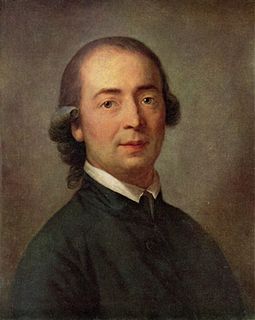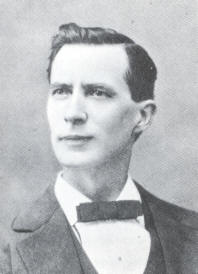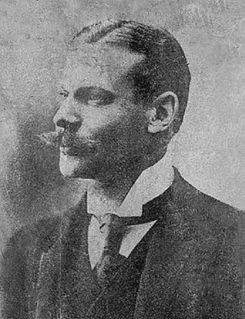A Quote by Henry Ford
There had been observed in this country certain streams of influence which are causing a marked deterioration in our literature, amusements, and social conduct...a nasty Orientalism which had insidiously affected every channel of expression...The fact that these influences are all traceable to one racial source [Judaism] is something to be reckoned with...Our opposition is only in ideas, false ideas, which are sapping the moral stamina of the people.
Related Quotes
Embedded in every technology there is a powerful idea, sometimes two or three powerful ideas. Like language itself, a technology predisposes us to favor and value certain perspectives and accomplishments and to subordinate others. Every technology has a philosophy, which is given expression in how the technology makes people use their minds, in how it codifies the world, in which of our senses it amplifies, in which of our emotional and intellectual tendencies it disregards.
The Declaration has a moral power which is of enormous weight and influence. The statement of the rights represent a goal, or a standard, to which every man can look and with which he can compare what he in fact enjoys. The fact that no country was prepared to vote against the Declaration indicates its compelling moral force.
Many of the products which create a modern standard of living are only the physical incorporations of ideas- not only the ideas of an Edison or a Ford but the ideas of innumerable anonymous people who figure out the design of supermarkets, the location of gasoline stations, and the million mundane things on which our material well-being depends. Societies which have more people carrying out physical acts and fewer people supplying ideas do not have higher standards of living. Quite the contrary.
Have you never observed that children will sometimes, of a sudden, give utterance to ideas which makes us wonder how they got possession of them? Which presuppose a long series of other ideas and secret self-communings? Which break forth like a full stream out of the earth, an infallible sign that the stream was not produced in a moment from a few raindrops, but had long been flowing concealed beneath the ground?
[Raphael's] great superiority is due to the instinctive sense which, in him, seems to desire to shatter form. Form is, in his figures, what it is in ourselves, an interpreter for the communication of ideas and sensations, an exhaustless source of poetic inspiration. Every figure is a world in itself, a portrait of which the original appeared in a sublime vision, in a flood of light, pointed to by an inward voice, laid bare by a divine finger which showed what the sources of expression had been in the whole past life of the subject.
A witch who is bored might do ANYTHING. People said things like 'we had to make our own amusements in those days' as if this signified some kind of moral worth, and perhaps it did, but the last thing you wanted a witch to do was get bored and start making her own amusements, because witches sometimes had famously erratic ideas about what was amusing.
This world is not a vale of sorrows if you will recognize discriminatingly what is truly excellent in it; and if you will avail yourself of it for mutual happiness and well-being. Therefore, let us explain as often as possible, and particularly at the departure of life, that we base our faith on firm foundations, on Truth for putting into action our ideas which do not depend on fables and ideas which Science has long ago proven to be false.
Our conceptions of morality, as all our other ideas, pass through a course of development; the difficulty comes in adjusting our conduct, which has become hardened into customs and habits, to these changing moral conceptions. When this adjustment is not made, we suffer from the strain and indecision of believing one hypothesis and acting upon another.
The wisest is he that knows only that he knows nothing. God only knows. We mortals are only troubled with morbid little ideas, sired by circumstance and damned by folly. The human head can absorb only the flavorings of its surroundings. We assume that our faith political and our creed religious are founded upon our reason, when they are really made for us by social conditions over which we had little control.
Backlock, a poet blind from his birth, could describe visual objects with accuracy; Professor Sanderson, who was also blind, gave excellent lectures on color, and taught others the theory of ideas which they had and he had not. In the social sphere these gifted ones are mostly women; they can watch a world which they never saw, and estimate forces of which they have only heard. We call it intuition.
It's my firm conclusion that human meaning comes from humans, not from a supernatural source. After we die, our hopes for an afterlife reside in the social networks that we influenced while we were alive. If we influence people in a positive way -- even if our social web is only as big as our nuclear family -- others will want to emulate us and pass on our ideas, manners, and lifestyle to future generations. This is more than enough motivation for me to do good things in my life and teach my children to do the same.
There is a striking parallel between the spreading of germs and the spreading of ideas or propaganda. On the one hand we are dealing with a virus which can be transported and transmitted under certain conditions which favor or limit its transportation or transmission: on the other hand with ideas, religions, and doctrines, which can be described as germs, benevolent or malevolent, according to the point of view one takes up. These germs can either remain at their source and be sterile, or emerge in the spreading of infection.
The quality of light by which we scrutinize our lives has direct bearing upon the product which we live, and upon the changes which we hope to bring about through those lives. It is within this light that we form those ideas by which we pursue our magic and make it realized. This is poetry as illumination, for it is through poetry that we give name to those ideas which are, until the poem, nameless and formless-about to be birthed, but already felt.
A large part of our attitude toward things is conditioned by opinions and emotions which we unconsciously absorb as children from our environment. In other words, it is tradition—besides inherited aptitudes and qualities—which makes us what we are. We but rarely reflect how relatively small as compared with the powerful influence of tradition is the influence of our conscious thought upon our conduct and convictions.




































